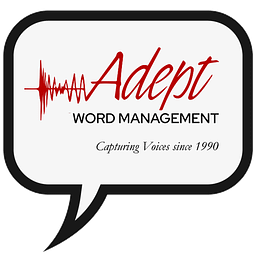If you enjoy idioms as much as we do, Merriam-Webster has quite some interesting articles! Which of the following idioms do you think came first?
Fly the coop
When a chicken is accused of having flown the coop, it means that the chicken has escaped from their coop and is now flying or roaming free. Idiomatically, we use fly the coop to mean “to leave suddenly or secretly” or “to escape or go away” or “to leave home.”
In the morning the suspect had flown the coop.
All their children have flown the coop.
Third wife Lenore Stevens, fed up with his obsessive work habits, flew the coop 18 months ago, and the couple’s 11-year marriage looks to be… in turnaround. “We’re not totally done on that,” says [Richard] Mulligan, who until Nest was probably best known as Soap’s trouble-plagued Burt Campbell, a role that won him a 1980 Emmy. “It’s not a done thing yet. We’re just separated.”
—Joanne Kaufman and Doris Bacon, People Weekly, 29 May 1989
Pecking order
Pecking order refers to the basic pattern of social organization within a flock of poultry in which each bird pecks another lower in the scale without fear of retaliation and submits to pecking by one of higher rank. Chickens thus establish rank within their flock by pecking one another. The phrase is also sometimes used of other, non-pecking animals such as horses. In its idiomatic use, pecking order among humans refers to a social hierarchy (though usually without the pecking).
…my father’s sisters were squabbling in accordance with their time-tried pecking order.
—Hortense Calisher, Weidenfeld & Nicolson, 1988
A discussion of the sociodynamics of bouldering springs up; Ann says that the rock can be a tense and uncomfortable place for beginners. People will show you the moves, yes, but you learn very soon that there is a pecking order.
—John Skow, Smithsonian, June 1985
In the nineteen forties cats and cat people ranked very near the bottom of the pecking order of pets and pet owners. An organization of cat haters called Friends of the Birds was openly advocating the trapping and killing of neighbors’ pet cats and was winning legislative support in Illinois and California…
—Raymond D. Smith, Cats Magazine, October 1983
Put all your eggs in one basket
To put all of your eggs in one basket is to risk all you have on the success or failure of one thing. This idiom apparently comes from the idea that, when collecting eggs from your hens, should you put them all in one basket and then drop that basket, you would lose all your eggs. A safer bet would be to divide them among a few different baskets.
Another lesson drawn from these downturns is the importance of diversification, a strategy that involves spreading investments across a variety of assets to reduce exposure to any single one. Crypto winter’s dramatic price fluctuations serve as a warning that putting all one’s eggs in one basket can be costly.
—Damilola Lawrence, Cryptopolitan, 19 May 2023
We believe mixed farming is the best option for our operation. We don’t like having all our eggs in one basket. For years, cattle were not overly profitable … but beef cattle, in particular Angus, have been extremely profitable over the past five years.
—Louise Mann, The Weekly Times (Australia) Online, 18 May 2023
Walk on eggshells
To walk on eggshells is to exercise extreme caution. The extended use apparently comes from the fact that eggshells are fragile and would, upon being stepped on, break easily. It would take an impossibly light step to not break them. The phrase is used especially to refer to acting carefully around someone who may be easily upset.
They had to walk on eggshells around the unpredictable coworker.
In late April, [Cockrell Hill Mayor Luis] Carrera wasn’t sure if Jimmie [Vaughn] wanted to hug him or punch him. He said that he felt like he was walking on eggshells around the Texas guitar legend. At first, he thought Jimmie was in a bad mood until he cracked a smile.
— Christian McPhate, The Dallas Observer, 8 May 2023
Mother hen
When a hen is hatching eggs and raising young chicks she sits on them physically protecting them from harm. A hen will continue to keep her chicks close by for several weeks, guiding them to eat the right foods and stay away from danger. A person described as a mother hen is a person who assumes an overly protective maternal attitude.
If you’re a particularly lucky writer, Nora was not only an influence but a sort of literary mother hen with a cashmere-clad wing outstretched. She was a connector, a cajoler, a cheerleader—maybe even a friend. I was among those lucky ones.
—Meghan Daum, The Los Angeles Times, 28 June 2012
And while [Renée] Bacher initially justified her mother-hen actions as being in her daughter’s best interest—coming up with excuses to vet her daughter’s roommate or staying too long in her daughter’s dorm room under the guise of helping her move in—eventually she concluded: “As with all Helicopter Parenting, this was about me.”
—Lori Gottlieb, The Atlantic, July/August 2011
No spring chicken
Typically, with the warming weather in the spring, a hen’s natural instinct to hatch eggs will kick in. She’ll sit on her clutch, and about three weeks later chicks will emerge from their shells. Thus, spring is when the youngest chickens are upon us. The term spring chicken is used figuratively to mean “a young person”.
Owing to some other illness of [Aerosmith frontman Steven] Tyler’s, the last three shows went off the tour. It was disappointing. Most of those guys are more than 10 years older than I am, and I’m no spring chicken. I’m not sure they’ll ever tour again.
— Kim Poindexter, Tahlequah Daily Press (Oklahoma), 2 April 2023
[WWE wrestler Randy] Orton is still just 42 years old, which is like a spring chicken in pro wrestling these days. A plethora of high-profile stars—ranging from Bobby Lashley to Edge to Brock Lesnar—are still performing at an incredibly high level in their mid-to-late 40s, and there’s little to suggest that Orton won’t be able to do the same.
—Blake Oestriecher, Forbes.com, 27 March 2023
Rule the roost
A roost is a support (such as a bar or tree branch) on which chickens rest. And in a flock you may find that one chicken rules that roost. Figuratively, rule the roost means “to have the most control or authority in a group”.
Both of our parents were tough, but Mama was as tough as an old shoe, who ruled the roost without saying a word.
—Wayne Easter, quoted in The Mt. Airy News (North Carolina), 14 May 2023
Summer grilling (smoking) season is upon us. Travel west a couple of states and peppery brisket slow-smoked over post oak is king. But here in God’s country, pork rules the roost.
—Russ Latino, Delta Democrat Times (Greenville, Mississippi), 18 May 2023



